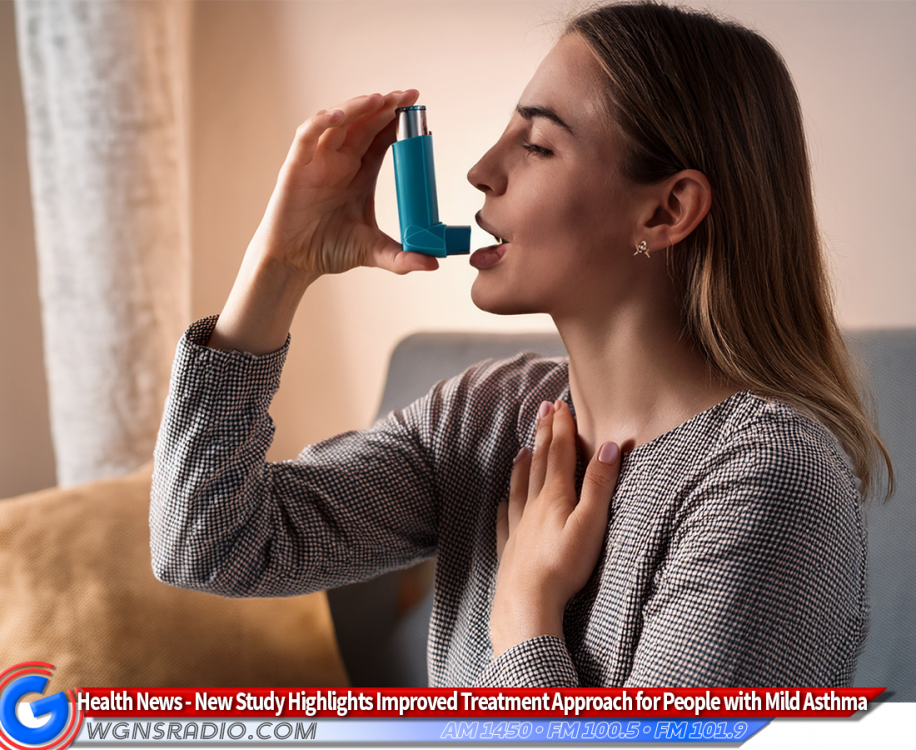Health News - Mild asthma sufferers have another rescue therapy option when they experience asthma symptoms. In a new multicenter, late-stage trial, the inhaler combination of albuterol/budesonide significantly reduced severe asthma attacks in people 12 and older with mild asthma.
The findings of the BATURA trial, published in the New England Journal Medicine, show that replacing conventional as-needed albuterol with the as-needed combination inhaler containing both an inhaled corticosteroid and albuterol (i.e. budesonide/albuterol) resulted in nearly a 50% reduction in severe asthma exacerbations. This effect was consistent even among patients with mild asthma who were not identified as high-risk for severe attacks. Importantly, the benefits were seen regardless of whether patients used daily controller medication.
“This is a very meaningful effect and allows patients with apparently mild asthma to reduce their risk of severe attacks without need for daily medication use, which many patients with mild disease often don’t use consistently,” said lead author Leonard Bacharier, MD, holder of the the Janie Robinson and John Moore Lee Chair in Pediatrics and director of the Pediatric Asthma Center at Monroe Carell Jr. Children’s Hospital at Vanderbilt.
Asthma is a condition that affects the airways in the lungs and makes breathing difficult. Over 28 million people, or 1 in 12, suffer from asthma in the United States, according to the Asthma and Allergy Foundation of America.
While mild asthma, which affects between 50% and 70% of people diagnosed with asthma, is often perceived as low risk, it can still lead to severe or fatal exacerbations. Up to 30% of severe asthma episodes and deaths occur in patients with mild or infrequent symptoms.
Historically, albuterol has been used to provide quick relief from asthma symptoms. However, this study reveals that adding budesonide, an inhaled steroid, significantly reduces the risk of severe exacerbations compared to using albuterol alone.
“It provides relief, as it contains a medicine that relaxes the airways (albuterol), but it also provides a dose of anti-inflammatory medication (budesonide, an inhaled steroid),” said Bacharier, professor of Pediatrics in the Division of Allergy/Immunology/Pulmonary Medicine.
The new inhaler strategy has now been shown to work for patients at all levels of asthma severity and can be integrated with various existing controller regimens. It offers a simple way to reduce the risk of severe asthma attacks by switching rescue inhalers.
The investigators conducted the phase 3 fully virtual and decentralized clinical trial screening prospective participants from across the United States. To be eligible, participants had to be 12 years or older with uncontrolled asthma while taking the National Asthma Education and Prevention Program Step 1 or Step 2 treatment.
They enrolled 2,516 participants who were randomized to treatment, with 2,421 included in the full analysis. Participants were randomized to receive albuterol–budesonide or albuterol as needed for 12–52 weeks.
A total of 1,797 (71.4%) participants completed the trial, including 903 and 894 in the albuterol–budesonide and the albuterol groups, respectively. The majority of participants (97.2%) were 18 years or older.
A limitation of the BUTARA trial in adolescents is that fewer than 3% participants were between ages 12 and 18, making it difficult to generalize results in this group.
Bacharier noted that further research is underway to determine the effectiveness of this approach in younger children, with the ongoing ACADIA study focusing on adolescents with asthma.
This study was funded by Bond Avillion 2 Development LP. Medical writing support for this manuscript was funded by AstraZeneca, the maker of an inhaled corticosteroid and albuterol.





